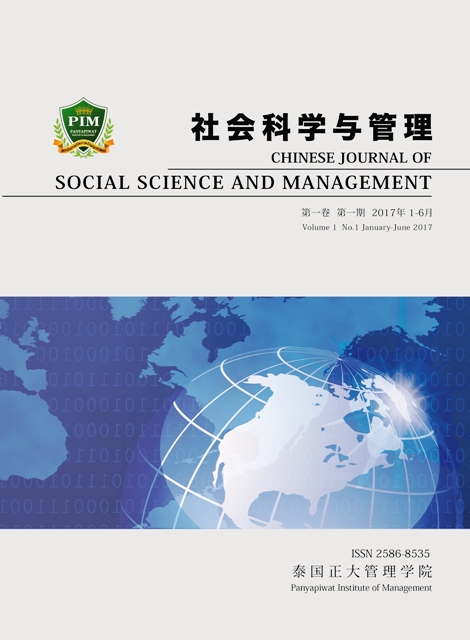A CORPUS-BASED STUDY ON THE METONYMY WORDS OF THE HSK VOCABULARY OUTLINE
Main Article Content
Abstract
There is a kind of metonymy words with rhetorical meanings in the HSK Vocabulary Outline,
such as ‘Hong Niang’, ‘Hong Lin Jin’. Many research results can be found in academic circle in this
domain, and researchers have obtained general conclusions about this area. However, their major corpus
source is Modern Chinese Dictionary, among which less have been base on HSK word list, even less in
HSK Vocabulary Outline.
Based on previous research, we choose the words in HSK Vocabulary Outline as our target to
make a detailed investigation on the metonymy words in it. After analyzing and explaining these words,
I will combine theory in teaching Chinese as a foreign language to compile statistics about the using
of these words in HSK dynamic corpus, and finally draw some pedagogical implications from the
discussion about metonymy words
Article Details
Chinese Journal of Social Science and Management Editorial Division
The Office of Research and Development, Panyapiwat Institute of Management
85/1 Moo 2, Chaengwattana Rd., Bang Talat, Pakkred, Nonthaburi 11120, Thailand
Tel. 02 855 01048 E-mail: cjssm@pim.ac.th
References
Han Ban & Confucius Institute. (2009). The New Outline of Chinese Test. Beijing: The Commercial Press. [in Chinese]
Li, M. (2011). A Study of Vocabulary Teaching and Acquisition in Teaching Chinese as a Foreign Language. Beijing: Encyclopedia of China Publishing House. [in Chinese]
Li, S. (2011). The Study of Chinese Word formation and Creation. Beijing: The Language Press. [in Chinese]
Liu, Y. (2004). Study on the Metonymy Words of Modern Chinese. Master, Shangdong Normal University. [in Chinese]
Liu, Y. (2013). Study on Metonymy Words of Chinese Dictionary. Beijng: The Chinese Oceanic University Publisher. [in Chinese]
Peng, Y. (2006). Discuss the Type and Origin of Metonymy Words in Modern Chinese. Journal of Hubei Institute of Education, 4, 23-28. [in Chinese]
Ren, X. (1981). Chinese Morphology. Beijing: China Social Sciences Publishing House. [in Chinese]
Shandong University. (2005). An Analysis of the Characteristics of Pronouns. Guangxi: Guangxi social sciences. [in Chinese]
Yi, D. (2014). An Analysis of the Source of Pronouns in the Vocabulary of New Chinese Proficiency Test. Xian: Xian Industry University. [in Chinese]
Zhao, J. (2006). The Study of Chinese Words and Teaching. Beijing: Commercial Press. [in Chinese]


